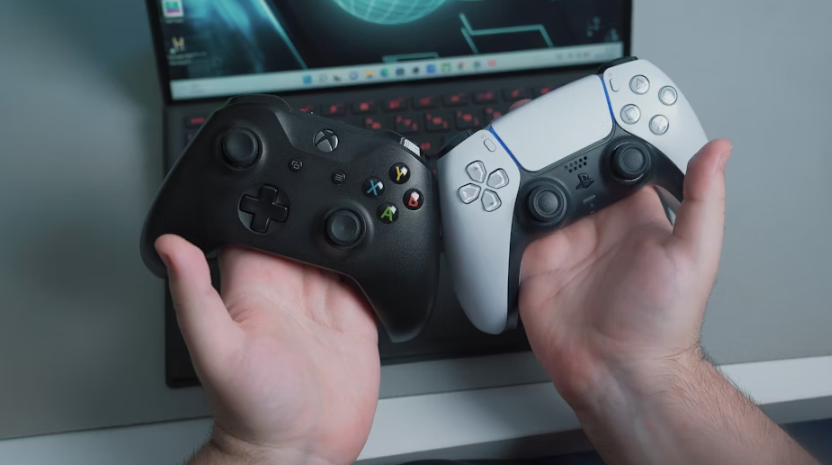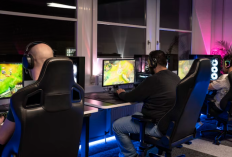Game Console Wars 2025: Who’s Really Winning?

PS5 DualSense and Xbox controller-Onur Binay-https://unsplash.com/
Game Console Wars 2025: Who’s Really Winning?
Every decade brings a new battle in the console wars, but 2025 feels different. Gone are the days of hardware specs alone deciding victory. This year, the war is fought not in living rooms but in clouds, ecosystems, and communities. Gamers are no longer asking “Which console has better graphics?” but “Which one feels like home?”
The New Definition of Winning
For years, Sony, Microsoft, and Nintendo have traded blows. But in 2025, the scoreboard looks strange. Sony’s PlayStation 6 boasts record-breaking sales in Japan and Europe. Microsoft’s Xbox Cloud Network dominates streaming in North America. And Nintendo? It quietly thrives, charming families with its hybrid magic once again.
Winning isn’t about selling boxes anymore. It’s about owning attention. And that attention now stretches across phones, laptops, and tablets — devices that were never part of the traditional battlefield.
Cloud Gaming Changes Everything
Cloud gaming has turned the console into a service rather than a machine. Xbox’s Cloud Network lets you play Forza Horizon on a fridge if it has a browser. PlayStation’s revamped PS Now+ integrates AI-driven latency correction. Even Nvidia and Amazon, once considered outsiders, have entered the fight with aggressive pricing.
Players are adapting fast. “I don’t even know where my console is anymore,” laughs streamer Daniel Cruz. “It doesn’t matter — I can load my game anywhere.” This flexibility has reshaped loyalty. Gamers are loyal to their libraries, not their devices.
Subscription Ecosystems Take Center Stage
The biggest winner of 2025 might not be a console, but a business model. Subscription services like Game Pass, PlayStation Plus Ultra, and Nintendo Infinite Access have replaced the old habit of buying games one by one. It’s Netflix logic — access beats ownership.
- Game Pass Ultra: 600+ titles across PC, console, and mobile with real-time cloud saves.
- PlayStation Plus Ultra: Exclusive cinematic experiences and AI-personalized recommendations.
- Nintendo Infinite Access: Classic catalog meets modern portability.
This shift has blurred the lines between competitors. Players subscribe to multiple ecosystems at once — a form of “console polygamy” that would have seemed unthinkable a decade ago.
Hardware Still Matters — But Differently
Hardware remains the emotional core of gaming. The weight of a controller, the hum of a console — they’re nostalgic anchors. PlayStation 6’s “Haptic AirSense” controller simulates wind and temperature, while Xbox’s adaptive AI triggers analyze player tension mid-game. Nintendo continues to charm with its motion feedback JoyPlus controllers that double as fitness devices.
But the biggest surprise? Indie console startups. Devices like the “NovaBox” and “Vortex One” have emerged, offering open-source gaming with modular design. They’ve turned the console into a personal playground for creativity, not just consumption.
Regional Winners, Global Trends
Geography plays a bigger role than ever. In Southeast Asia, cloud-first consoles dominate. In South America, budget hardware with localized subscriptions thrive. Europe remains loyal to physical media, while North America leads digital adoption.
The wars are no longer global in the traditional sense — they’re regional skirmishes fought on cultural fronts. What works in Tokyo might flop in Berlin.
Esports and Exclusivity
Exclusive titles still matter — but now they fuel esports ecosystems. PlayStation’s “Chrono Pulse” dominates global tournaments, while Xbox’s “Aetherfall” is breaking viewership records on streaming platforms. Nintendo continues its grassroots legacy with local competitions that attract families and indie developers alike.
These exclusives aren’t just games; they’re worlds that bind players emotionally and socially. The battle isn’t for market share — it’s for belonging.
Who’s Really Winning?
If there’s a victor in 2025, it’s the gamer. The wars have forced innovation, accessibility, and creativity across the board. You don’t have to pick a side anymore — the real prize is the freedom to play how and where you want. The console war didn’t end; it evolved.









